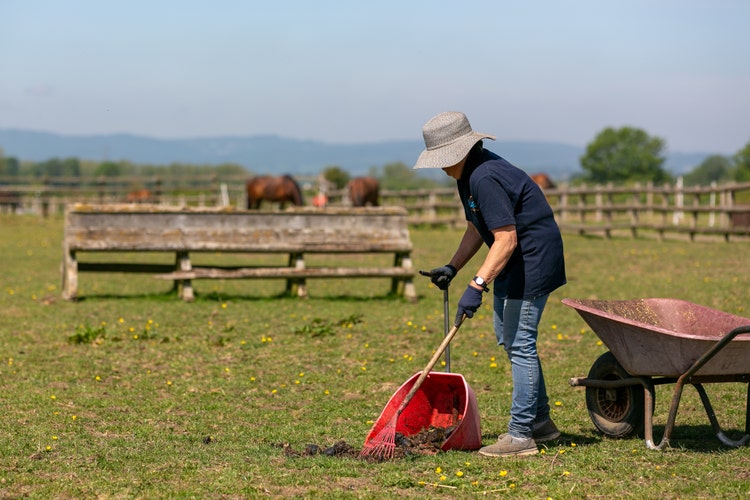
Research Reveals Vital Clues To Help Fight Anthelmintic Resistance
2xl
2024-01-15
base
Research
transparent
medium
false
right-aligned
white
The surveys were organised as part of Project WORMS, which stands for Working to Overcome Resistance and Make for a Sustainable future and is a collaboration between CVS Group, VetPartners’ Equine Clinical Board, IVC Evidensia and Equine Reproductive Services, supported by the British Equine Veterinary Association (BEVA).
The aim was to investigate current approaches to parasite control practices in the UK’s horses and identify areas where management practices can be improved, and if veterinary surgeons can better target their advice.
With no new anthelmintic products being developed, the horse world could be left without effective anthelmintics in the near future, putting horses at an increased risk of parasite damage-related illnesses such as severe diarrhoea, weight loss and colic, which are currently preventable.
Of the 4,233 people who responded to the horse owner survey:
- 84% carry out regular faecal worm egg counts (FWECs) to determine their horse’s roundworm and small and large redworm burden;
- 40% routinely test for tapeworm;
- 73% regularly poo-pick their horse’s grazing;
- 22% incorporate co-grazing or alternate grazing with ruminants as part of their paddock management.
- Of those carrying out regular FWECs, 37% said they still routinely worm their horse at least once a year, regardless of the test results.
In a second survey focusing on the breeding industry, 36% of stud managers reported they have experienced parasite-related illness within the last year on their premises, most commonly weight loss, diarrhoea and colic.
Of the 56 stud owners and managers who responded to the survey:
- 28% revealed they are aware there is wormer resistance on their property;
- Youngstock aged one to three years of age were reported to be most affected by parasites, followed by weanlings and foals;
- 32% of respondents do not poo-pick their pastures;
- 89% harrow paddocks and 57% co-graze or alternate grazing pastures with ruminants;
- FWECs, veterinary advice and previous experience are considered “very important factors” in choosing a dewormer;
- Of the respondents who said that veterinary advice was “very important” when deciding whether to worm, nearly half used moxidectin and praziquantel as their first-line anthelmintic.
Dr Tim Mair, CVS equine director, said:
“Resistance among horse parasites to the currently available wormers is widespread and increasing. We desperately need to reduce the over-use of these drugs, not only to stem the tide of resistance, but also to reduce the toxic effects that these drugs have on the environment.”
Julia Shrubb, deputy chair of VetPartners’ Equine Clinical Board and a vet at Ashbrook Equine Hospital, said:
"It is critical that horse owners, stud farms and veterinary surgeons work together to delay the onset of further anthelmintic resistance. The information from the surveys is vital to give us a further understanding of how and why anthelmintics are given to horses, and we are grateful to everyone who took the time to take part. The surveys have identified areas where management practices can be improved and this will allow veterinary surgeons and SQP (Suitably Qualified Person) professionals to give more appropriate and targeted advice and encourage responsible anthelmintic use. It is very encouraging that high levels of testing were reported, which underpins responsible anthelmintic use.”
Camilla Scott, a member of the stud team at Rossdales Veterinary Surgeons, added:
“With the survey results showing that stud farms are seeing anthelmintic resistance and parasite-related disease in horses, ensuring faeces are removed from paddocks regularly, FWECs are carried out and targeted treatment is performed rather than interval dosing are key. In light of new evidence of macrolyclic lactone resistance on UK stud farms, it is also critical that the indiscriminate use of moxidectin as a first-line wormer is stopped.”
Graham Hunter, IVC Evidensia equine group veterinary advisor, said:
“The results are tremendously interesting, with many horse owners using diagnostic tests to look at FWECs in their horses. Sadly, there is a huge educational piece to be done regarding the mismatch between FWEC usage and an essential targeted approach to the use of appropriate anthelmintics. We need to improve this situation as a matter of urgency to combat the very significant issue of anthelmintic resistance.”
James Crabtree, a director of Equine Reproductive Services and a BEVA Council member, said:
“This research provides us with a window into current horse owner and stud farm perceptions, behaviours and practices which we can analyse to target the strengths and weaknesses of current approaches, veterinary guidance and education. It’s a great starting point we must follow on from."
The results of the surveys are being prepared for peer-reviewed publication and the initial findings of Project WORMS were presented at the BEVA Congress in Birmingham, where the research was awarded BEVA’s Sam Hignett Award.
Julia Shrubb, who gave the presentation at Congress, added:
"We are honoured to win the Sam Hignett Award and it reflects how vital this piece of research is to the future health and welfare of all equines. It has been a true collaborative effort, with representatives from all the UK major veterinary employers coming together, reflecting how essential it is that we tackle this critical topic together."